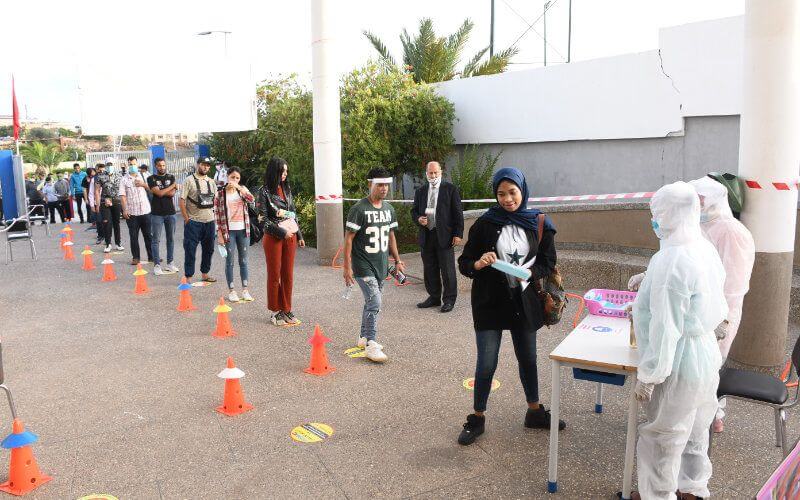Morocco’s COVID-19 App "Wiqaytna" Struggles with Low Adoption Amid Trust Issues

The Covid-19 exposure notification app "Wiqaytna" has only mobilized two million Moroccans. And for good reason.
"In Morocco, citizens are confronted with the adoption process and the lack of public awareness of the legal framework in this area," explains Soumia Guennoun, a teacher-researcher at the Euromed University of Fez (UEMF), also an associate researcher at the Research Institute for European Mediterranean and African Studies (RIEMAS).
She explains that two major elements undermine the adoption of "Wiqaytna". These are trust and flexibility. She also mentions the Moroccan legal framework, which does not sufficiently guarantee the respect of privacy and malicious behavior. "These aspects are little known to the general public. Yet, the legal aspect related to it can be usefully scrutinized to dispel concerns and encourage citizens to adopt this very useful application in the current context," says the teacher-researcher. The controversies related to absolute anonymization make the "Wiqaytna" application vulnerable, notes L’Économiste.
The download of the application is done on "Google Play" or "App Store" where the user’s personal data is stored. "Here, the fear concerns the cross-referencing of data in order to identify the users. To counter any possible abuse, law 09-08 conditions the processing of personal data on the unambiguous consent of the person concerned to the operation or set of operations envisaged," emphasizes Dr. Guennoun. "In the sense of Article 4 of this law, this consent can only be set aside for reasons that are exhaustively listed, constituting possible legal bases for processing," she continues.
Researcher Soumia Guennoun will also point out that although the reason of public interest in the field of health is subordinate to the sense of Article 21 of Law 09-08, in the absence of a specific law, to the authorization of the National Commission for the Control of the Protection of Personal Data (CNDP), "Wiqaytna" "processes sensitive data such as health data." "Here appears the second aspect relating to proportionality in view of the health purposes of the processing. It is then a question of finding a balance between health and individual freedoms," she concludes.
Related Articles
-

Tangier’s Last Urban Forest Threatened: Luxury Resort Plan Sparks Environmental Showdown
13 September 2025
-

Declassified: 1978 Swiss Memo Exposes Algeria’s Secret Plot to Destabilize Morocco and Mauritania
13 September 2025
-

Drug Baron’s Light Sentence Sparks Appeal: Attempted Murder Charges Resurface
13 September 2025
-

Rabat’s Housing Market Defies National Trend with Surprising Q2 Surge
13 September 2025
-

China’s Yutong Bus Scores Record-Breaking Deal: 723 Buses for Morocco’s Africa Cup
13 September 2025